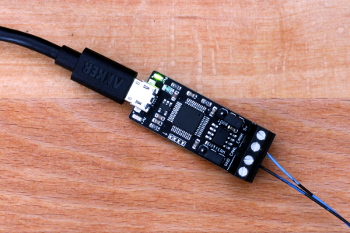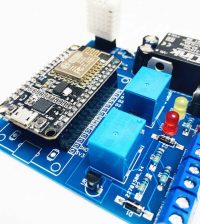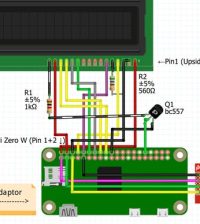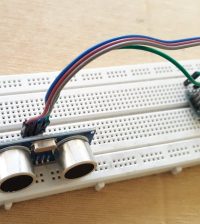- makeITcircular 2024 content launched – Part of Maker Faire Rome 2024Posted 2 weeks ago
- Application For Maker Faire Rome 2024: Deadline June 20thPosted 2 months ago
- Building a 3D Digital Clock with ArduinoPosted 7 months ago
- Creating a controller for Minecraft with realistic body movements using ArduinoPosted 7 months ago
- Snowflake with ArduinoPosted 8 months ago
- Holographic Christmas TreePosted 8 months ago
- Segstick: Build Your Own Self-Balancing Vehicle in Just 2 Days with ArduinoPosted 8 months ago
- ZSWatch: An Open-Source Smartwatch Project Based on the Zephyr Operating SystemPosted 9 months ago
- What is IoT and which devices to usePosted 9 months ago
- Maker Faire Rome Unveils Thrilling “Padel Smash Future” Pavilion for Sports EnthusiastsPosted 10 months ago
CANable: the Open Source USB to CAN Adapter

The CANable is a small open-source USB to CAN adapter. The CANable shows up as a virtual serial port on your computer and acts as a serial-line to CAN interface.
On Linux the CANable works natively with slcand, so you can use all of the standard can-utils command-line utilities and even Wireshark to interact with the bus.
On Windows and Mac, the CANable works with cantact-app. This is a simple Java application that shows CAN traffic in real-time and allows you to transmit messages on the bus.
For even more flexibility, the canard library allows you to directly talk to the CAN bus from Python. The library is cross-platform and can connect directly to a CANable’s virtual serial port interface. With only a couple lines of code you can decode traffic on the bus, send messages, and more.
“It supports CAN bit-rates of up to 1 Mbit/s. The product comes with an open-source SocketCAN driver software. It features a Micro-USB connector and a 4-pin screw terminal with CAN_H, CAN_L, 5-V supply, and ground. The CANable device is a hardware clone of Eric Evenchick’s CANtact project, an open-source USB-to-CAN hardware adapter.”
CANable features are:
- Supports CAN baud rates up to 1M
- Compatible with socketcan through slcand
- Native socketcan support with candleLightfirmware
- Micro-USB connector
- 4-pin screw terminal with CANH, CANL, 5v, and GND
- Jumper for entering the bootloader
- Jumper to enable/disable termination
- Internal oscillator trimmed by USB communication
- PTC-fused 5v output
- Simple cross-platform Python library















